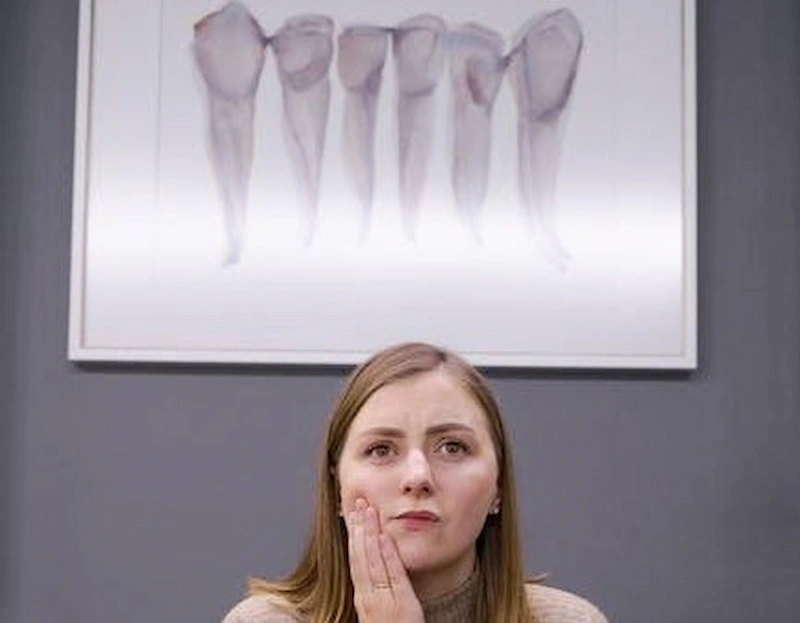Have you ever experienced the sharp pain of a broken wisdom tooth and wondered about the consequences of leaving it untreated? A cracked or fractured wisdom tooth isn’t an oral health concern; it can be a gateway to more serious complications. In the following sections, we’ll unravel the risks of a neglected broken wisdom tooth.
By the end of this blog post, you will understand the urgency of seeking dental care and be equipped with the knowledge to prevent future dental disasters. Stay tuned for expert insights that could save you from unnecessary pain and complications.
Understanding the Role of Wisdom Teeth
Before we tackle the risks associated with a damaged wisdom tooth, it’s important to understand the role these molars play in your oral health. Wisdom teeth are the final set of molars located at the back of your mouth. They’re thought to have helped our ancestors grind down tough plant tissue.
But, with our modern diet and evolution leading to a smaller jaw size, these teeth often don’t have the necessary space to grow into the correct position, if they grow in at all. This can result in impaction or a misaligned tooth that’s prone to breakage due to the forces exerted on it.
A broken wisdom tooth can go unnoticed or be ignored, yet it can lead to a series of complications, some of which can be life-threatening. Let’s examine what can happen if a wisdom tooth is broken and left untreated.
What Can Happen if a Wisdom Tooth is Broken?
Leaving a broken wisdom tooth untreated may result in severe infection as bacteria can infiltrate the damaged area. This infection can lead to an abscess, where pus collects at the site, causing significant pain and swelling.
If not managed, the infection can spread to other parts of the body, including the jawbone and beyond. Moreover, a fractured tooth can cause damage to adjacent teeth and soft tissues, leading to more complex dental issues.
Infection and Tooth Decay
When a wisdom tooth breaks, the protective enamel layer is compromised. This leaves the tooth susceptible to bacteria, leading to infection and tooth decay. Over time, decay in a tooth can cause severe pain and the need for emergency dental care, including root canal therapy or extraction.
Gum Inflammation and Swelling
The sharp edges of a broken wisdom tooth can irritate the surrounding gums, leading to inflammation and swelling. The condition, known as pericoronitis, can range from uncomfortable to excruciating and may need antibiotics and pain management before a more permanent solution is undertaken.
Damage to Adjacent Teeth
A wisdom tooth that breaks can cause damage to the neighboring teeth. The pressure from the broken part can lead to cracks or chips in other teeth, not to mention the difficulty of keeping the area clean, which can speed up tooth decay in surrounding teeth as well.
Affected Wisdom Tooth
An affected wisdom tooth is one that is unable to emerge through the gum. When breakage occurs on an already affected tooth, the situation can become not only painful but also risky for your health. In some cases, this can cause an emergency tooth extraction to avoid further complications.
Signs and Symptoms of a Broken Wisdom Tooth
Recognizing the signs of a broken wisdom tooth early can be vital in avoiding more serious complications. Common symptoms include sharp pain upon chewing or pressure, visible cracks or holes in the tooth, and a swell or redness in the surrounding gum tissue.
You may also experience a persistent bad taste in your mouth or bad breath, reflecting potential infection. If any of these symptoms manifest, it is critical to consult a dental professional.
Pain and Discomfort
Pain and discomfort are among the most immediate signs of a broken wisdom tooth. You may feel a sharp or dull ache in the area where the tooth is located. The pain can also radiate to other parts of your face, jaw, or even your ears.
Swelling and Redness
The presence of swelling and redness in the gums near the wisdom tooth is a sign of inflammation. Swelling can affect your ability to open your mouth and can lead to further complications if the underlying issue is not addressed.
Difficulty Eating and Chewing
As the broken tooth causes pain and the surrounding gum becomes swollen, you may find it difficult to eat or chew. This can impact your nutrition and lead to a loss of appetite.
Bad Breath and Taste
Decay and infection in a broken wisdom tooth can lead to not only bad breath or an unpleasant taste in your mouth but also to discomfort and pain. When a wisdom tooth breaks, it creates an opportunity for bacteria to accumulate, causing an infection that can affect the surrounding tissues.
It’s important to pay attention to these symptoms, as they can show the need for prompt dental care to prevent further complications and maintain oral health. Don’t ignore these signs and seek professional help to address the underlying issue.
Risks of Not Fixing a Broken Wisdom Tooth
Leaving a broken wisdom tooth untreated exposes you to a spectrum of health risks that extend beyond mere toothache. An unchecked infection can spread, leading to complications such as cysts, or even systemic conditions like sepsis.
Additionally, a damaged tooth can contribute to misalignment and bite issues, which may need more extensive orthodontic treatment. Delaying the repair of a broken wisdom tooth can incur greater medical expenses and more invasive procedures down the line.
Increased Risk of Infection and Decay
Leaving a broken wisdom tooth untreated increases the risk of bacterial infection and the spread of tooth decay. If left unaddressed, these infections can become systemic, affecting not only oral health but also leading to serious health issues throughout the body. It is important to seek timely treatment to prevent further complications and maintain well-being.
Potential for Abscess Formation
An untreated broken wisdom tooth can lead to the formation of an abscess, a painful condition characterized by a collection of pus. This can result in intense, throbbing pain that can impact daily life.
It is crucial to seek immediate professional treatment for dental abscesses to reduce the discomfort and prevent further complications. Such abscesses can be avoided with prompt care and attention to a broken tooth, emphasizing the importance of regular dental check-ups and timely interventions.
Misalignment of Adjacent Teeth
The presence of a broken wisdom tooth, especially when it is affected or erupted, can exert pressure on neighboring teeth, causing them to shift out of alignment. This misalignment can result in various issues such as crowding, gaps, or bite problems. In such cases, orthodontic treatment may be required to address the changes in tooth positioning and restore proper alignment for optimal oral health and functionality.
Jawbone Damage
A broken wisdom tooth can cause significant damage to the surrounding bone in which it sits. The impact of the broken tooth can weaken the bone structure, making it more susceptible to infections like osteomyelitis, which is an inflammation and infection of the bone.
If left untreated, this condition can lead to further complications and may need more extensive dental interventions to address. It is crucial to seek prompt dental care and treatment to prevent further complications and maintain oral health.
You may like – A Comprehensive Guide to Finding Affordable Implant Dentistry Options
Consequences of Not Treating a Broken Wisdom Tooth
Ignoring a broken wisdom tooth can lead to dire dental and health problems. Unchecked, the problem can escalate to necrosis of the tooth pulp, requiring more intensive surgical intervention than if treated.
The longer treatment is deferred, the greater the possibility of developing cysts or tumors that cause jaw surgery. Furthermore, the infection may spread beyond oral health, causing systemic issues that could compromise well-being.
Chronic Pain and Discomfort
Untreated broken wisdom teeth can cause chronic pain that affects your quality of life. This persistent discomfort can disrupt daily activities, making it difficult to eat, speak, or even sleep. Although over-the-counter pain medication may offer temporary relief, it fails to address the underlying issue, which necessitates proper dental treatment to reduce the pain and restore oral health.
Spread of Infection
You might get an infection called pericoronitis if you don’t treat a broken wisdom tooth. This infection can spread to other parts of your body, even your bloodstream. It’s possible to get sepsis from this infection, which is very dangerous and can kill you.
Sepsis happens when the immune system of the body fights off an infection too. Doctors need to treat it right away because it can damage organs and even kill you. To keep the infection from getting worse and to avoid getting sepsis, it is very important to see a dentist right away.
Complications During Extraction
Putting off getting a broken wisdom tooth pulled can make the procedure more difficult and raise the risk of problems. If you want to avoid problems during the extraction process, it’s usually best to take care of the problem as soon as you notice the break.
Not taking care of a broken wisdom tooth can cause more harm to the teeth, gums, and even the jawbone that is nearby. Also, the longer someone waits to get an extraction, the more pain and discomfort they may feel. Getting dental care at the right time will make sure that the extraction goes more, which is good for your oral health and well-being.
Long-Term Dental Problems
Neglecting a broken wisdom tooth can have serious consequences for your dental health. If left untreated, it can lead to long-term dental issues, such as the need for more extensive dental work.
This may include procedures like dental implants or bridges to replace lost teeth or correct misalignments. It is important to address the issue to avoid further complications and ensure optimal oral health in the long run.
Treatment Options for a Broken Wisdom Tooth
There are different ways to treat a broken wisdom tooth, which depend on several factors. Some of these are how bad the damage is, how healthy the patient’s teeth are, and how the broken tooth is shaped.
An extraction, dental crowns, or root canal therapy may be part of the treatment plan, which is made to fit the needs of each patient. It is important to talk to a dentist to figure out the best way to take care of your teeth and gums and make sure they stay healthy.
Extraction
If your wisdom tooth is hurt or giving you trouble, you should usually have it taken out. A lot of people do this, and it’s simple.
Most of the time, dentists say that wisdom teeth should be taken out to avoid problems in the future when they break or get stuck. By choosing extraction, people can avoid pain and keep their oral health in good shape.
Root Canal Treatment
If the structure of the tooth can still be saved and the wisdom tooth can be saved, a root canal procedure might be suggested. The infected pulp tissue from the tooth’s inner chamber is removed during this process. The root canals are then cleaned and sanitized.
After, a biocompatible material is used to fill the canals. This makes the tooth work again and keeps it stable for a long time. By keeping the natural tooth, a root canal can help keep the surrounding teeth and jawbone healthy and avoid the need for an extraction.
Restorative Procedures
If you hurt your wisdom teeth in a small way, fillings or dental crowns might be enough to fix the break and stop the decay from getting worse. Materials for teeth, like porcelain or composite resin, are shaped and glued to the tooth that needs work.
After these treatments, the tooth will look and work for longer because the structure will be fixed and the problem will not get worse. One of the best ways to fix the problem will depend on your situation and how bad the damage is. Talk to a dentist about this.
Making the Right Choice – Addressing Your Broken Wisdom Tooth Before It’s Too Late
In conclusion, never underestimate a broken wisdom tooth’s potential to escalate into severe health complications. Act and consult your dentist at the first sign of damage.
A proactive approach to treatment not only safeguards your oral health but contributes towards maintaining your well-being. Remember, a timely response to a broken wisdom tooth can mean the difference between a simple dental visit and a series of extensive, avoidable medical interventions.
Want to learn more? Don’t forget to explore our other articles before you leave!






